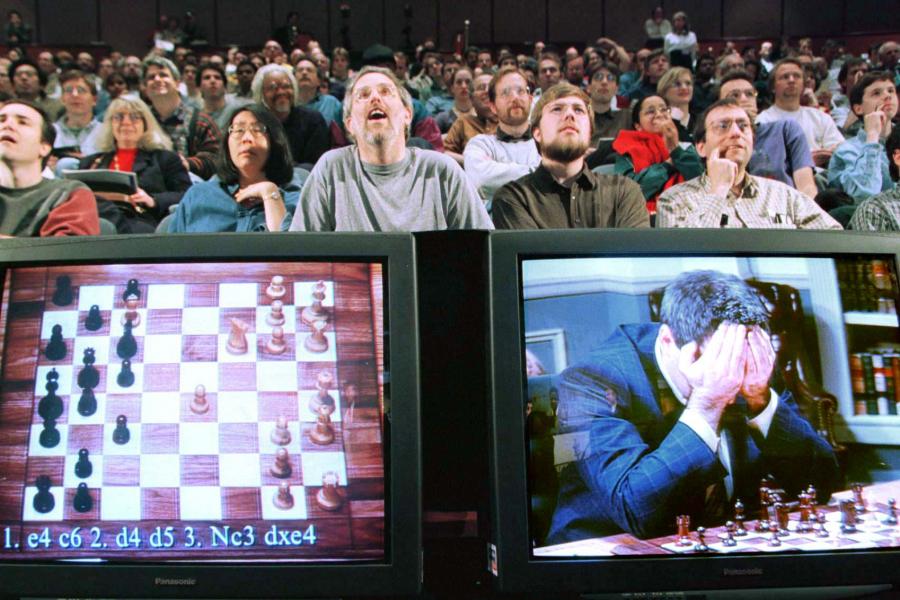IBM’s Deep Blue beats Garry Kasparov at chess, 1997

Date: 1997
Creator of the image: Unknown Date of the image creation: 1997 Medium: Photograph Person depicted: Garry Kasparov and an audience The world’s reigning chess champion, Garry Kasparov first faced IMB’s purpose-built chess computer, Deep Blue in 1996. The Russian master was very confident of his abilities, scoffing at an offer to split the half-million dollar prize 60/40 between the winner and loser, preferring all-or-nothing odds. Despite losing the first game, Kasparov went on to win three times, and draw twice, taking out the six-game tournament. In the game where Deep Blue prevailed, the machine made a move where it sacrificed a pawn. Kasparov described this as a ‘wonderful and extremely human move’: ‘So I was stunned by this pawn sacrifice. What could it mean? I had played a lot of computers but had never experienced anything like this. I could feel — I could smell — a new kind of intelligence across the table. While I played through the rest of the game as best I could, I was lost; it played beautiful, flawless chess the rest of the way and won easily.’ The following year a rematch was held. The six games resulted in three draws, one victory for Kasparov, and two for Deep Blue. This was the first time that a computer had managed to defeat a world chess-champion under tournament conditions with standard time-controls. Early in the game, Deep Blue won a decisive victory over Kasparov, and the Russian master was obviously perturbed — sighing and rubbing his face, before abruptly standing up, forfeiting the match, and walking away. Kasparov described the match as a ‘shattering experience’, as his body language in the above photograph suggests. After losing the tournament, Kasparov accused Deep Blue of cheating, of having a rival human chess-master hiding somewhere backstage, feeding moves into the machine. He demanded a rematch, but IBM, having achieved what it set out to do, refused the rematch offer and retired Deep Blue. Much was made of this victory, with it being heralded as a sign of an imminent age of machine intelligence. Others dismissed the victory, stating that it was a sign of problem solving without understanding that gave the illusion of intelligence, citing the fact that Deep Blue had the capability of evaluating 200 million positions per second, and thus it could win the game through brute force. We have chosen an image both of deep human emotion and computer-monitor mediation to signify the contradictory significance of this event.
Quotes
No quotes found.
Login to add a quote